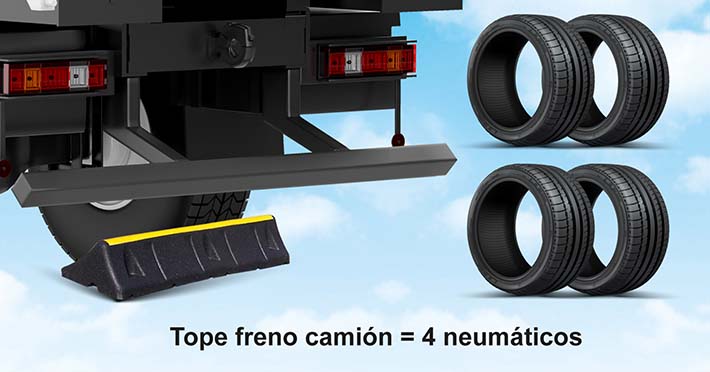In a release from TNU, the Spanish EPR agency highlighted the benefits of recycling.
All the waste generated by a tyre after its use, rubber, steel and fabric, are a rich source of material and energy resources since they can be reused, they explained.
The depletion of natural raw materials and fossil fuels is forcing the world to seek more sustainable solutions. In this sense, the recycling of end-of-life tyres has important advantages. There are numerous ways of recovering and transforming its components into innovative and sustainable uses, reducing the environmental impact, as is the case with these safe chock blocks for trucks.
The ecological chocks for heavy vehicles have been created to limit and block the mobility of trucks, trailers, forklifts, etc., or precisely locate the vehicle’s position for the safe loading and unloading of goods from trucks. The recycled rubber from obsolete tyres with which they are manufactured gives them extraordinary strength and durability, making them especially suitable to withstand the stress they have been designed for.
Manufacturing each of these 25-kilogram chocks allows the rubber from four tyres to be reused, saving the environment 122 kilos of CO2 emissions, 94 litres of oil and 7,843 litres of water. Considering the current energy and raw materials crisis, reusing tyres at the end of their useful life is a sustainable and economically viable alternative that minimises waste. It saves energy and raw materials, contributing effectively to the circular economy.
Reusing end-of-life tyre components is key to moving towards a sustainable future. In this sense, through the informative campaign “Did you know that…?” TNU explains the ecological, economic and social advantages of giving used tyres a second life as a step towards a more sustainable future.




















